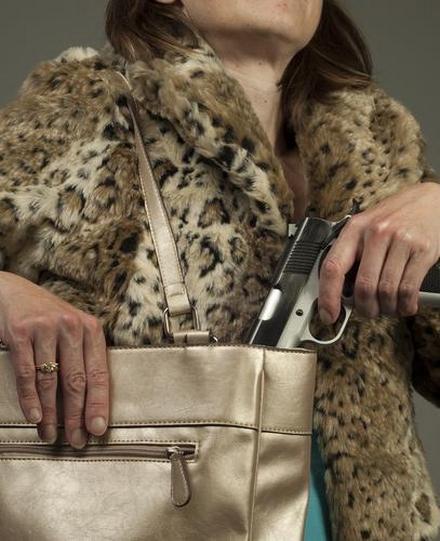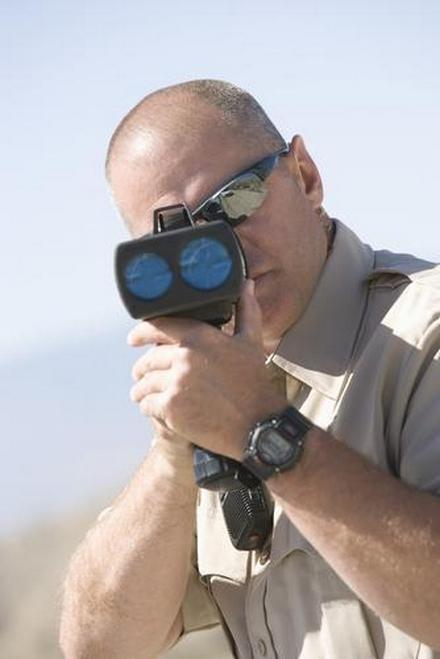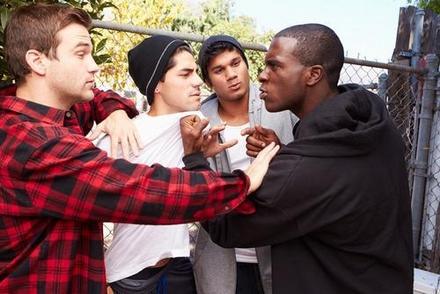TELEPHONES ANSWERED 24 HOURS A DAY
Recent Blog Posts
Is It Illegal To Carry a Concealed Weapon in the State of Illinois?
 As of July 9, 2013, Illinois residents must obtain a Concealed Carry License to carry a concealed firearm in the state. The Illinois State Police Department issues permits for the same. Under both federal and Illinois law, individuals are eligible to apply for concealed firearms permits if they are over 21 years of age, do not have a felony or other disqualifying issue on their record (such as being confined to a mental institution within the last five years), and pass a 16-hour training course.
As of July 9, 2013, Illinois residents must obtain a Concealed Carry License to carry a concealed firearm in the state. The Illinois State Police Department issues permits for the same. Under both federal and Illinois law, individuals are eligible to apply for concealed firearms permits if they are over 21 years of age, do not have a felony or other disqualifying issue on their record (such as being confined to a mental institution within the last five years), and pass a 16-hour training course.
Non-residents from most other states do not have reciprocity in Illinois. Concealed carry permits issued only by Hawaii, New Mexico, South Carolina, and Virginia currently qualify. Retired police officers who qualify annually under state guidelines are also allowed to carry concealed weapons.
The open carrying of firearms is almost entirely illegal in the state except when hunting, in a fixed place of business with the owner’s permission or in one’s own home. Without a concealed gun license, firearms must also be stored both unloaded and sealed in a case when transported.
9th Circuit Weighs In on Constitutionality of Warrantless Drug-Related Searches
 Recently, a judge in the federal district court covering northern California and centered in San Francisco delivered a ruling that will reverberate around the nation’s legal community for some time on the topic of warrantless drug-related searches.
Recently, a judge in the federal district court covering northern California and centered in San Francisco delivered a ruling that will reverberate around the nation’s legal community for some time on the topic of warrantless drug-related searches.
While the decision came as part of a larger case involving medical marijuana patients in California, the implications, as well as the timing, send a message far beyond the circuit itself and, in fact, could be a well-timed legal dart into the overall federal discussion about not just drugs, but fundamental constitutional issues underlying current public policy nationally.
Mere Declaration of a Public Threat Does Not Make It So
The specifics of the decision, which is that warrantless police raids on private homes (for reasons a county had declared “a threat”) violate the Fourth Amendment, should come as no surprise to many. The idea that United States law enforcement and prosecution has become overly draconian in regards to the domestic drug war is widespread.
The Impact of Gibbons v. Ogden on Medical Marijuana Operators In Illinois
 Gibbons v. Ogden, the 1824 ruling by the U.S. Supreme Court, is a decision from America’s storied legal past that has suddenly become a part of the national debate once again. The precedent set by this case that has fundamentally shaped American jurisprudence ever since is the idea that federal law takes precedence over state in matters of commercial contracts and assignations, but how could that decision apply to medical marijuana operators?
Gibbons v. Ogden, the 1824 ruling by the U.S. Supreme Court, is a decision from America’s storied legal past that has suddenly become a part of the national debate once again. The precedent set by this case that has fundamentally shaped American jurisprudence ever since is the idea that federal law takes precedence over state in matters of commercial contracts and assignations, but how could that decision apply to medical marijuana operators?
As state markets claim where federal law will not tread this year, and three states plus the District of Columbia and Guam vote to legalize some type of marijuana reform in November, the questions about federal vs. state pre-eminence has also been a news subject and a topic of debate for both the public and the legal community alike in Illinois and across the country.
Does Ogden have Impact On In-State or Only Interstate Commerce?
Could Your Teen Be Accused of Child Pornography Charges For Swapping Nude Selfies With Friends?
 A “selfie” is a digital self-portrait taken with a smart phone or other mobile device and distributed digitally online, usually by and through social media. While the technology is not really new, its use is; it is being adapted to fit a world where pictures often say more than tens of thousands of words. That said, like many aspects of the ongoing digital revolution, which has continued apace for the last 20 years, the first wide spread adopters of such technology and techniques are those within younger generations – in this case teenagers.
A “selfie” is a digital self-portrait taken with a smart phone or other mobile device and distributed digitally online, usually by and through social media. While the technology is not really new, its use is; it is being adapted to fit a world where pictures often say more than tens of thousands of words. That said, like many aspects of the ongoing digital revolution, which has continued apace for the last 20 years, the first wide spread adopters of such technology and techniques are those within younger generations – in this case teenagers.
And unfortunately, youthful curiosity mixed with technology can and increasingly does lead to legal trouble, sometimes of the federal kind. When selfies are taken by and shared with others (even other minors) that contain any kind of nudity or sexually explicit content, they potentially can violate child pornography laws – which is a criminal and, in some cases, federal liability.
New Aggravated Speeding Charges in Illinois Are No Joke
 While those who have never had to face the question may think the distinction is trivial, the difference between being charged with a “petty” speeding ticket and punished with an aggravated speeding offense is dramatic.
While those who have never had to face the question may think the distinction is trivial, the difference between being charged with a “petty” speeding ticket and punished with an aggravated speeding offense is dramatic.
In addition, while the speed limit increased from 65 to 70 mph in Illinois, new laws went into effect on January 1 of this year, which reduce the limit from 40 to 35 mph over the posted limits to qualify for more serious and expensive driving penalties.
Petty Speeding Vs. Aggravated Speeding
Petty speeding is what most people think of as the kind of driving that is against the law. In other words, drivers are issued tickets for driving too fast. In fact, under Illinois law, petty speeding is any driving offense where the speed limit is not broken by more than 25 miles per hour. Aggravated speeding is an offense where the speed of the offender’s vehicle is caught traveling 26 miles per hour or more over the posted speed limit.
Illinois DUI Laws Some of the Strictest in the Nation
 State law in Illinois is extremely aggressive in its prosecution of drivers who operate a moving vehicle while under the influence of alcohol or drugs. In addition to a zero-tolerance per se driving law for cannabis, drivers are considered impaired if blood-alcohol level is .08 percent or higher. Illinois DUI laws also gives discretion to the apprehending officer to cite drivers for the same if blood alcohol is over .05 percent, but the penalties for drunk driving are not automatically triggered and depend on the decision of a court case (or plea deal).
State law in Illinois is extremely aggressive in its prosecution of drivers who operate a moving vehicle while under the influence of alcohol or drugs. In addition to a zero-tolerance per se driving law for cannabis, drivers are considered impaired if blood-alcohol level is .08 percent or higher. Illinois DUI laws also gives discretion to the apprehending officer to cite drivers for the same if blood alcohol is over .05 percent, but the penalties for drunk driving are not automatically triggered and depend on the decision of a court case (or plea deal).
Statutory Summary Suspension
Per Illinois DUI laws, drivers tested roadside with a blood-alcohol level (BAC) over .08 percent or who refuse testing at the scene will have their driver’s licenses immediately suspended. Drivers will then have 45 days to fight this in court. After that time, if still pending, the suspension is automatically triggered for six months. Those who fail chemical testing will have their driver’s licenses suspended for six months, although DUI laws allow for year-long suspensions which can be imposed for refusal to submit to chemical testing. The full range of DUI penalties depend upon whether it was a first-time offense, or factors such as whether or not bodily harm occurred as a result of the intoxication.
Property Crimes in Illinois
 Theft, robbery, and burglary are felonies in the state of Illinois unless the value of the property damaged or taken is less than $300. Furthermore, property crimes are classified either as misdemeanors or felonies, depending on the overall property value involved. Punishment for felony property crimes can include fines and/or prison. Property crime law is also very extensive in Illinois. It is considered an “index crime” because this is how these crimes are listed by the Federal Bureau of Investigation.
Theft, robbery, and burglary are felonies in the state of Illinois unless the value of the property damaged or taken is less than $300. Furthermore, property crimes are classified either as misdemeanors or felonies, depending on the overall property value involved. Punishment for felony property crimes can include fines and/or prison. Property crime law is also very extensive in Illinois. It is considered an “index crime” because this is how these crimes are listed by the Federal Bureau of Investigation.
The following provides information on the different types of property crimes and how they may be committed.
Arson, Burglary and Vandalism
Illinois’ Ban the Box Law on Criminal History and Employment
 Last year, Illinois Governor Pat Quinn signed legislation adding Illinois to the list of 12 states around the country that allow applicants for government sector jobs to apply for employment without having to disclose previous felony convictions. Recently, he also signed legislation sent to him by the Illinois General Assembly, which extends this new civil rights protection to workers in the private sector as well. Illinois has now become the 5th state in the country that requires both government and private employers to remove mandatory pre-interview job screening questions that relate to previous criminal convictions. The law is set to take effect in January, 2015.
Last year, Illinois Governor Pat Quinn signed legislation adding Illinois to the list of 12 states around the country that allow applicants for government sector jobs to apply for employment without having to disclose previous felony convictions. Recently, he also signed legislation sent to him by the Illinois General Assembly, which extends this new civil rights protection to workers in the private sector as well. Illinois has now become the 5th state in the country that requires both government and private employers to remove mandatory pre-interview job screening questions that relate to previous criminal convictions. The law is set to take effect in January, 2015.
After the initial application though, employers may still be able to ask about criminal histories. Because of this, if you have a previous criminal record, it may be in your best interests to consider the process of expungement to clear your name.
Illinois Street Gang RICO Act
 The Racketeer Influenced and Corrupt Organizations Act, (or RICO), part of the Organized Crime Control Act of 1970, changed the way federal officials prosecute criminal organizations. In 2012, Illinois passed the state Street Gang RICO Act designed to empower local and state officials to round up suspected gang members en masse and charge them as members of criminal organizations.
The Racketeer Influenced and Corrupt Organizations Act, (or RICO), part of the Organized Crime Control Act of 1970, changed the way federal officials prosecute criminal organizations. In 2012, Illinois passed the state Street Gang RICO Act designed to empower local and state officials to round up suspected gang members en masse and charge them as members of criminal organizations.
What is RICO?
The Street Gang RICO Act is written to prosecute people involved in a pattern of activity described as criminal, which ranges from drug offenses and prostitution to gun crimes, robbery and murder. Criminal conspiracy convictions carry up to 30 years in prison and fines can reach as much as $250,000.
One of the more controversial parts of the law, originally designed to break up the mafia and organized crime organizations, allows coordination between federal and local law enforcement in the process of investigation and conviction. A person or enterprise can be convicted of charges for racketeering in any territory of the U.S. Those prosecuted successfully not only face fines and imprisonment, however, but also asset forfeiture in the most controversial aspects of sentencing.
New Illinois Law Means Inmates Can Challenge Conviction with DNA Testing
 Legislation expanding Illinois’ convicts’ right to challenge convictions based on DNA testing has moved forward in the state this year. The statute that passed through the Illinois State Senate and House in the spring has just been signed by Governor Quinn.
Legislation expanding Illinois’ convicts’ right to challenge convictions based on DNA testing has moved forward in the state this year. The statute that passed through the Illinois State Senate and House in the spring has just been signed by Governor Quinn.
The move by the state is part of a national trend in the last several years as the technology associated with DNA testing has improved, combined with a growing awareness in the legal community that the conviction of innocents is a problem that cannot be ignored by the American justice system. Additional technical assistance is available to both accused individuals and those who represent them via the National Institute of Justice.
Innocent People Often Plead Guilty to Avoid Harsher Sentences
The new Illinois statute acknowledges that innocent defendants sometimes plead guilty to lesser crimes that lead to incarceration in order to avoid the possibility of harsher sentencing. The new state law gives the right to use this scientific technique to prove innocence, only if the evidence was not available at trial.




